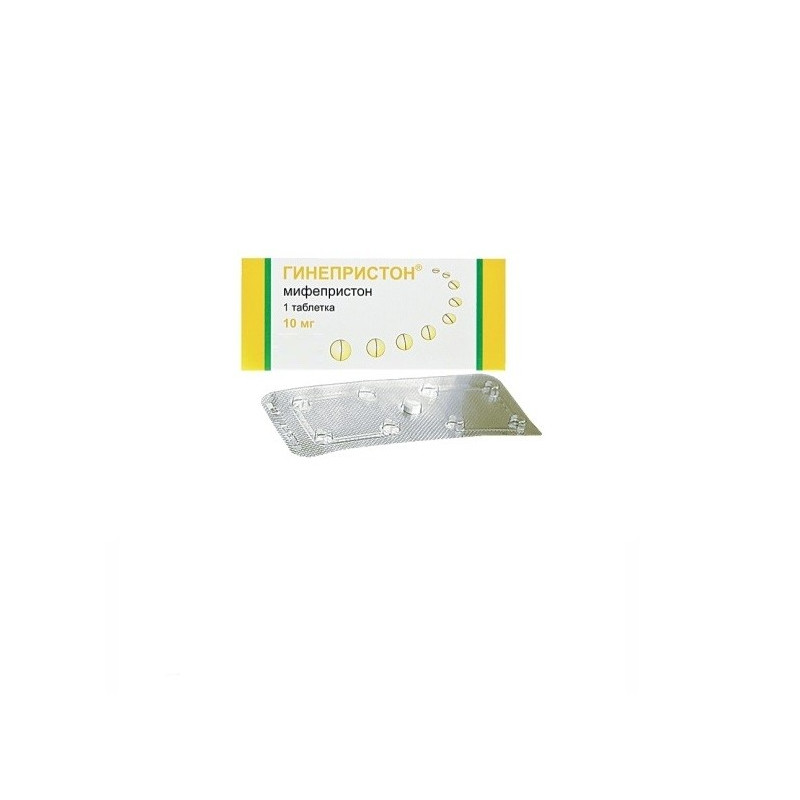



 All payments are encrypted via SSL
All payments are encrypted via SSL
 Full Refund if you haven't received your order
Full Refund if you haven't received your order
Tablets for oral administration:
1 pill contains mifepristone 10 mg;
1 or 2 pieces per pack.
Ginepristone is a synthetic steroid anti-progestogen, (it blocks the action of Progesterone at the receptor level), does not possess gestagen activity. Antagonism with GCS (due to competition at the level of communication with receptors) is noted. Ginepristone increases the contractility of the myometrium by stimulating the release of interleukin-8 in choriodecidual cells and increasing the sensitivity of the myometrium to prostaglandins. Depending on the phase of the menstrual cycle, it causes inhibition of ovulation, a change in the endometrium, and prevents the implantation of a fertilized egg.
I
Emergency (post-coital) contraception (after unprotected intercourse or if the method of contraception used cannot be considered reliable).
history of hypersensitivity to mifepristone, adrenal insufficiency and long-term therapy of SCS, acute and chronic renal and / or hepatic insufficiency, severe extragenital pathology.
The drug can not be used during pregnancy. Breastfeeding should be stopped for 14 days after taking Ginepristona.
Inside, within 72 hours after unprotected contraception of sexual intercourse, 1 tab. Ginepristone 10 mg. To preserve the contraceptive effect, you should refrain from eating 2 hours before the use of the drug and for 2 hours after it. Ginepristone can be used in any phase of the menstrual cycle.
actionI
Abdominal discomfort, weakness, headache, nausea, vomiting, dizziness, urticaria, hyperthermia, bleeding from the genital tract, menstrual disorders.
Ginepriston is not recommended for regular use as a planned, permanent contraception. The drug does not protect against sexually transmitted diseases and AIDS.
At a temperature not higher than 20 ° C.
Ginepriston